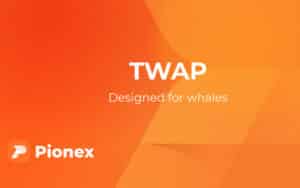What are metaverse tokens, and why the hype?
Metaverses are virtual worlds that may be accessed by a computer or virtual reality (VR) equipment. Tokens in the metaverse are a form of digital currency that can be exchanged for real-world goods and services. Metaverse is built to alter the way the internet functions fundamentally. It is based on a virtual world, where you can do your work and have fun.
Following Facebook’s announcement that it will be changing its name to Meta, the market for metaverse-focused cryptocurrencies skyrocketed. After years of using the name “Facebook,” the social media powerhouse has decided to change its name to something that best describes its entire business portfolio.
Analysts feel that metaverse tokens are the “next millionaire makers” due to their potential for even greater returns.
Top metaverse tokens
1. The Sandbox (SAND)
With a good run, The Sandbox’s market capitalization may easily surpass that of many of the so-called “Ethereum killers.” This is due to the fact that it provides greater utility. The decentralized virtual world created by The Sandbox caters to the needs of its users, and its user-generated content ecosystem has its own NFT market and gaming platform.
As the game progresses, the supply of SAND tokens will become increasingly scarce, elevating the token’s value substantially.
2. Decentraland (MANA)
Decentraland is a virtual world within which MANA is the native token for all manner of utilities. It is built on the Ethereum blockchain; therefore, it is an ERC-20 token. MANA is the currency used when purchasing land and other virtual products and services on Decentraland. Users can buy MANA tokens on several platforms, including cryptocurrency exchange platforms.
Decentraland has produced two tokens: MANA and LAND. The LAND token is a non-fungible token (NFT) that is used to validate ownership of virtual property on the network.
3. Star Atlas (ATLAS)
Space exploration game Star Atlas pits players against each other in a battle for intergalactic dominance. Players can generate money by trading and creating non-fungible tokens (NFTs) in the Star Atlas universe.
The game’s built-in currency, Atlas, can be used to pay for goods and services. There is more to Star Atlas than just its token system; it also offers staking, battles to acquire rare in-game objects, and exploration of distant worlds to forge alliances.
4. Axie Infinity (AXS)
In Axie Infinity, a gamer’s dream is realized – he or she is paid to play! Based on the amount of time spent playing, participants can earn ETH. There is, however, a catch: NFTs must be used to pay for gaming time.
The in-game characters are known as Axies. These, together with commodities like land and accessories, can also be purchased with NFTs. NFTs, on the other hand, have recently risen in price, making them a pricey option for gaming.
5. High Street (HIGH)
In contrast to other projects, this one employs a blend of virtual and physical experience. There has never been anything like this before in terms of a metaverse focused on trade. High Street’s virtual worlds also include NFTs.
The platform uses smart bonding curves to provide token holders with immediate access to liquidity. They can be used in a variety of ways, some of which are better than others. It’s easier for businesses to get on board and use their products as NFTs because players can purchase ownership of real-world items.
6. Metahero (HERO)
Metahero’s unique and mind-blowing idea is drawing a lot of interest in HERO from metaverse analysts. Using 3D-scanning technology, Metahero makes ultra-HD avatars of real-world things, including humans. In other words, Metahero’s primary goal is to transform real-world objects digitally. These virtual items are also minted as non-fungible tokens (NFTs).
7. Bloktopia (BLOK)
A basic building tool will be available to users of this virtual real estate, allowing them to create games, develop artwork, come up with new challenges, and so on. Polygon, which runs Bloktopia, is powered by the MATIC token. Transactions can be made quickly and at a lower cost than on Ethereum.
Bloktopia, like other metaverses, has an NFT marketplace. In the Bloktopia marketplace, users can buy BLOK real estate. Staking the BLOK tokens can generate annual returns of up to 60%, which boosts their usefulness.
8. Epik Prime (EPIK)
An important role for Epik is to help early-stage games gain acceptance in the mainstream gaming market. In order to cast its net wide, prior to the debut of its NFT collection, it cooperated with a wide range of brands, companies, and worldwide leaders.
Because Epik is both an NFT technological platform and the world’s leading digital agency, it sets itself apart from other NFT providers.
9. RedFox’s (RFOX)
Red Fox Labs, a technological business, is actively developing a virtual shopping area. One of its main goals is to provide interactive shopping experiences in an independent metaverse.
Additionally, Red Fox features two tokens that support the ecosystem’s operations and various transactions. The RFOX tokens are used to purchase real estate and virtual assets, whilst the VFOX tokens are used to reward users for their participation in the game.
10. Enjin Coin (ENJ)
Founded by Enjin, Enjin Coin is an Ethereum-based ERC20 coin. This network has more than 200,000 gaming communities, and more than 18 million gamers enrolled. Using the Enjin Coin, developers may have their own cryptocurrency that can be spent on any platform.
In summary
Metaverse coins are expected to rise in value as a result of the crypto industry’s shift toward games. However, it is critical to remember that great games require time to develop. Avoid being sucked into any of these initiatives if you’re only in it for the short-term thrills. Before putting any money into the game, learn everything you can about how it works.



